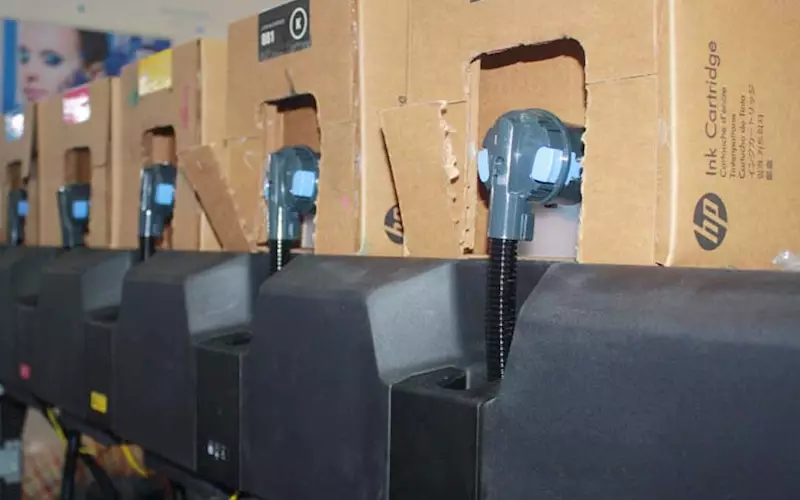Fespa 2019: HP makes first moves into textiles with dye-sublimation
HP will make its first-ever moves into the textiles printing market by launching two machines in its new Stitch S series of dye-sublimation printers, with a third on the way for Fespa 2019. The HP Stitch family will initially comprise three dye-sublimation machines. The 1.6m-wide Stitch S300 and S500 printers will be available from June after being debuted at the ISA 2019 convention in Las Vegas, US.
26 Apr 2019 | By Rahul Kumar
Going forward, the Stitch branding will be an umbrella term for all HP machinery in the textiles sector. The family of machines, including the full show debut of the S1000, will appear on HP’s stand at Fespa 2019, set to take place at Messe Munich on 14-17 May.
HP said the Stitch S300 had been designed for ease-of-use and is intended for entry-level or minimal-use markets. It comes with HP’s Ergosoft RIP, HP transfer paper and the manufacturer’s full profile library. It is capable of both transfer and direct-to-fabric printing.
Its sibling, the S500, was described by HP global business director for textiles Ester Sala as a ‘workhorse’ for high-production operations, designed to keep up with demanding workloads in markets such as sportswear, interior decor and soft signage.
Both machines will be followed in July by the 3.2-m Stitch S1000, which will be presented under exclusive invitation at ISA and will receive its public unveiling at Fespa 2019 in Munich next month. Details on the S1000 are scant as yet and will be revealed closer to the show.
“The digital printing market is worth USD 3.6-bn and polyester makes up 60% of the sqmt that is printed,” said Sala. “It is expected to continue growing to a point where its demand is doubled by 2030 and the more it grows, the more dye-sublimation will grow, too. It is because of this that we have decided to move into the four key markets of soft signage, interior decor, sportswear and apparel. Across these markets, it is the same pain points that they have in common: colour management, waste and inefficiencies, and delivery times. We have been working closely with customers during the development stages of the Stitch family to make sure we come up with the best solution possible.”
A pioneering feature of the Stitch family will be its user-replaceable printheads which Sala said “will bring a lot of peace of mind to users in a very manual industry” by saving on downtimes.
Features including automated maintenance, the ability to take papers as light as 25-gsm and a variety of hardware built in for image, colour and banding control have been touted by HP as reasons the Stitch is a unique proposition in the textiles market.
The S500 runs a symmetrical eight-head dual-CMYK configuration and is designed to maintain colour and quality consistency at speeds up to 110-sqm/hr, billed by Sala as “twice as fast as the fastest machine currently on the market.”
Alongside the printers, HP has also launched its own branded dye-sublimation papers and a specialised dye-sub thermal inkjet ink billed as the first of its kind by HP.












 See All
See All